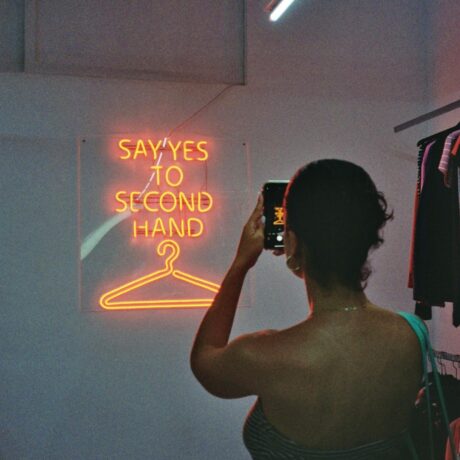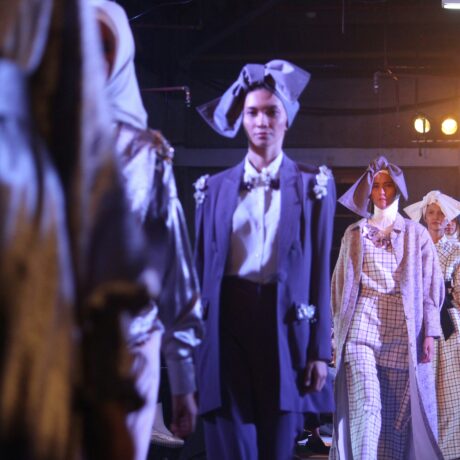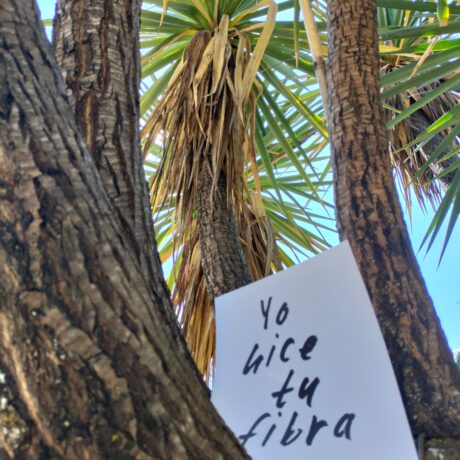Pixan: The true spirit of fashion
“My name is Mayra. I am indigenous Maya-Mam from the highlands of Guatemala. I work for ‘Asociacion de Mujeres de los Altiplanos’ (AMA) supporting their textile and artisan enterprise: House of Design Pixan.” AMA’s 25-year-old Community Facilitator explains with a confident smile. She continues, “Pixan offers unique textile products rich in Mayan culture, and productions services to designers. We ensure that our artisans have good working conditions and are paid a fair wage.”
Mayra offered to participate for the #whomadeyourclothes campaign to raise awareness amongst consumers about the real value of clothing production in non-western cultures compared to the impact of our throw-away fashion tendencies here in the west.
Who Made My Clothes?
“The dress I am wearing today” Mayra tells us, “has been hand woven on a back-strap loom. It took the woman who wove my ‘huipil’ (blouse) six months to complete. The ‘corte’ (skirt like material) is traditional to San Juan Ostuncalco where I come from, taking between 15 to 20 days to finish.” Intricately hand woven garments like this are expected to last a lifetime; buying a huipil is therefore a conscious and careful long-term investment. There are no ‘2-for-1’ offers or ‘50% off’ temptations to encourage consumers to buy clothes they do not need, or will never wear.
The impact of the throwaway fashion culture in the western world is becoming increasingly visible in Guatemala. Tons upon tons of unwanted clothes are shipped to Guatemala from the USA every week. ‘Pacas’ – secondhand clothes stores – are now commonplace on every street. Whereas a women’s blouse in a ‘paca’ can cost only Q2, a standard handmade huipil will cost between Q600-Q1000 (between 55 and 90 pounds). There are less Maya women now using indigenous dress because pacas provide cheaper clothing alternatives.

The once thriving western clothing industry in the Guatemalan highlands is also on the decline. Local tailors cannot compete with an ever-growing influx of Chinese made imitations. Large foreign-owned sweatshops have also set up shop around Guatemala City, thanks to the Free Trade Agreement incentivised by the offer of tax-free havens. ‘Maquilas,’ (sweatshops, as we know them) draw tailors and artisans away from their communities to assemble garments, repeating monotonous tasks for minimum wages with working days lasting upwards from 10 to 16 hours. Workers only receive training in order to complete their specific task on the production line. This gives them little chance of acquiring skills needed for career advancement.
Mayra compares the devaluation of the textile industry in Guatemala with Pixan’s model. “Pixan’s artisans can work flexibly to balance work and family obligations, with the choice to work in our workshop or from home.” She adds, “Artisans can typically receive a third more for their weavings, giving them an additional income to buy much needed household necessities, pay for their children’s education or provide medicine for sick relatives”. Mayra beams with pride. By paying artisans more for their products, Pixan compensates artisans for the real value and effort involved in the production process.
Pixan: The Story Behind the Label
Pixan is made up of women artisans from AMA women’s circles. They include skilled tailors, embroiderers, leather workers and jewelery makers. They also come from cultures and communities torn apart by war and globalisation, lacking access to basic opportunities to disrupt the cycles of poverty that plague their communities.
The spark that birthed Pixan over twenty years ago was AMA founder Guadalupe Ramirez, also Maya-Mam who bought high quality thread for a group of women widows to weave textiles that she could sell locally, and at church sales in the United States.
With this business, women were able to make money to support their families after their husbands and fathers were burned alive during Guatemala’s 30-year internal conflict. The support of the circle also helped them through the tragedy. Ramirez went on to open AlterNatives Boutique in Richmond, Virginia in 1992, one of the first fair trade retail stores in the United States where the creations of Pixan can now be found. As well as the fair trade workshop set up for ethically minded designers and retailers, Pixan also makes its own lines of products.
While Pixan seeks to create modern and innovative designs, these products never loose sight of their Mayan origins with each Pixan product inspired by Mayan cosmology. Through their craft, the women of Pixan and the happy consumer learn about their cultural heritage, preserving this knowledge for generations to come.
The results for the artisans are profound. Mayra, who facilitates women circle meetings, tells the story of Pascuala from one of AMA’s women’s circle, which started up in 2006 in response to the devastation following Hurricane Stan in 2005. “Thanks to the additional income she’s earned weaving scarves, earrings, and jewelery, Pascuala was able to buy her father medicine for his heart condition.” This is just one example of Pixan’s income-earning opportunities allow women to improve their quality of life.
While AMA and Pixan are fantastic resources for Guatemala’s indigenous women, the goal is complete independence. The women of Pixan are learning to start their own businesses, perform effective market research, and network with potential buyers. Meanwhile, they’re already earning fair wages, developing confidence, and creating independent lives of opportunity for themselves and their communities. “The goal is that one day when AMA isn’t there, the women will have the skills to go on supporting themselves,” explains Mayra.
The fact that Fashion Revolution exists shows how the tide is beginning to turn against the current fashion paradigm. Rana Plaza was an all too clear example of the failings of the multi-national garment industry in an attempt by developing producers to keep up with western consumer demands for ever cheaper clothes and fleeting fashion trends. Change is needed. Pixan and Pacuti are examples of what this change could look like, providing innovative alternatives to cheap sweatshop labour. It is now time for us the consumers to standup and support enterprises like these to demonstrate that we do value fairly made, durable clothes
To connect with our producers, or to support AMA’s work, please visit our website amaguate.org . Alternatively contact our team directly AMA@highlandsupportproject.org
Written by Simone Riddle, with extracts by Rebecca Miner.
Photo credit: Main image by Paula Zalkin photography








